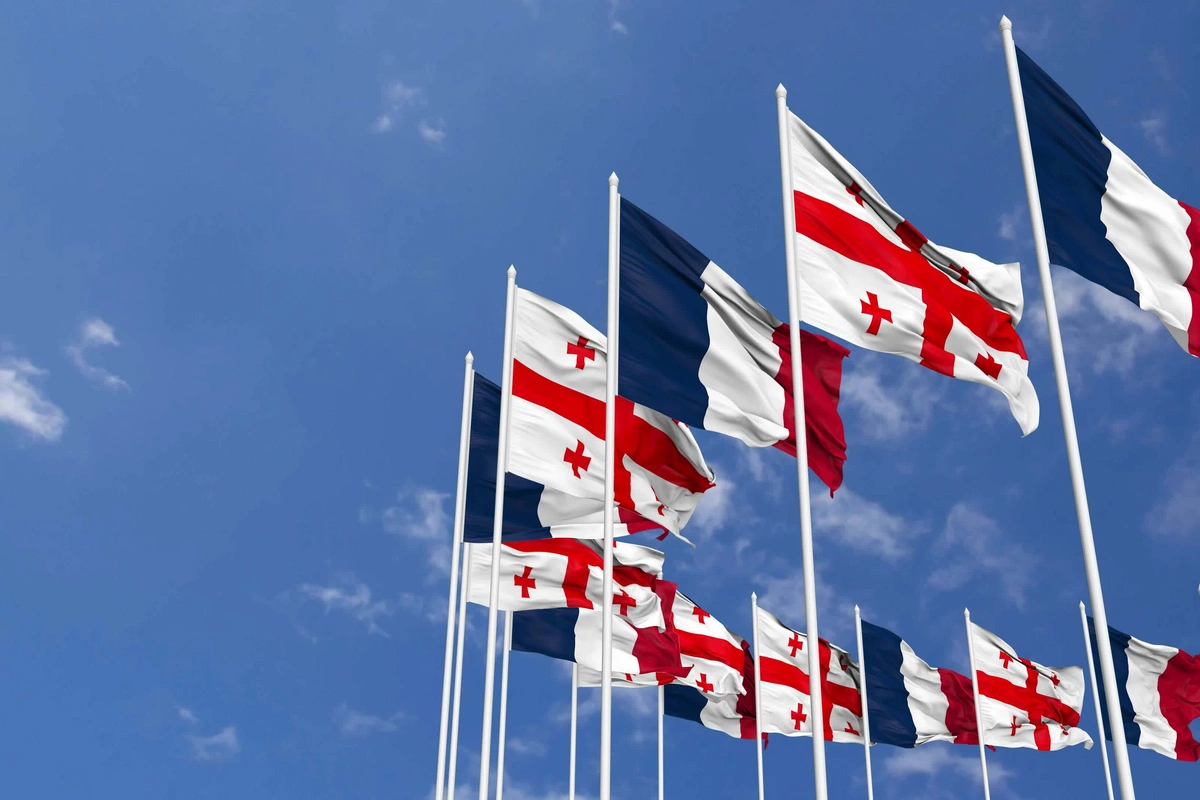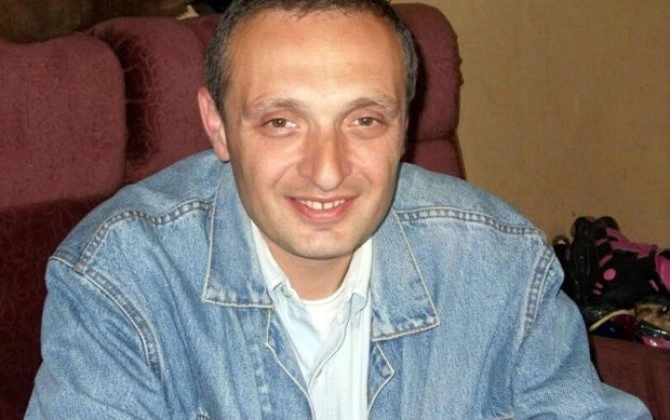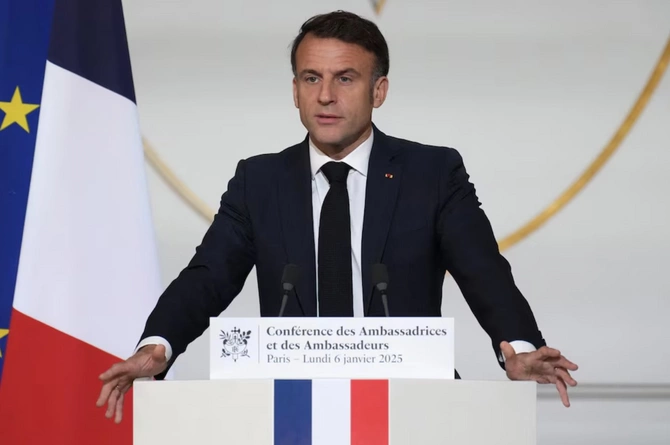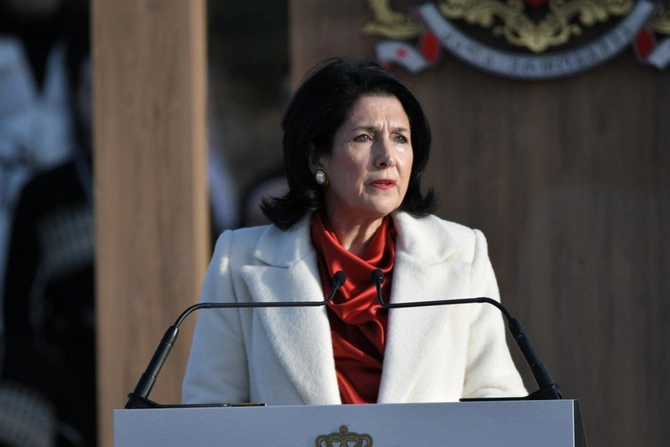
Photo: Vecteezy
By Asif Aydinly
In recent months, the South Caucasus has become the focal point of shifting geopolitical dynamics, with global powers like France playing an increasingly prominent role in the region’s affairs. French President Emmanuel Macron’s recent remarks about Georgia and neighboring countries have sparked debates over double standards, foreign interference, and the future of European integration for Tbilisi. At the same time, Georgia grapples with internal challenges, including political protests, questions about the legacy of its former leadership, and the rising influence of its opposition. To shed light on these pressing issues, The Caspian Post spoke with Georgian expert Gia Kuchava. In this exclusive interview, Kuchava shares his insights on France’s controversial stance, the evolving relationship between Georgia and its neighbors, the internal political landscape, and the implications of these developments for the region’s stability.

- On January 6, during his annual address to France’s ambassadors, French President Emmanuel Macron made offensive remarks about several sovereign states, including Georgia. Paris’ evidently destructive stance toward Tbilisi and Baku seems to bring Georgia and Azerbaijan closer together. At the same time, we are aware of France’s special relationship with Armenia. Could this factor influence Georgian-Armenian relations?
- On January 6, in his speech to French ambassadors, Macron referred to Russia's increasing aggression toward the EU and other countries. It was in this context that he spoke about Armenia, Azerbaijan, and Georgia.

French President Emmanuel Macron delivers his speech to French ambassadors posted around the world, Monday, Jan. 6, 2025 at the Elysee Palace in Paris. Aurelien Morissard/Pool via REUTERS
I believe it is no secret to most observers that France has long been a staunch advocate for Armenia. This is due to the large Armenian diaspora in France and their substantial influence on the country’s political, social, and media landscapes. Let me remind you that Édouard Balladur, who served as Prime Minister from 1993 to 1995, had Armenian roots. Currently, three ministers of Armenian descent serve in the French government. Additionally, the current French Prime Minister Michel Barnier has supported Armenian nationalists for decades and has been outspoken about his Turkophobia.
Therefore, Macron’s words should not come as a surprise. Interestingly, the French president seems to have forgotten that the Karabakh conflict was instigated by the Kremlin shortly before the collapse of the USSR, aiming to maintain its presence in the South Caucasus region. He also overlooked the events of 1997, when the presidents of Azerbaijan, Heydar Aliyev, and Armenia, Levon Ter-Petrosyan, were ready to sign an agreement restoring Azerbaijan’s territorial integrity. Russian intelligence orchestrated Ter-Petrosyan’s ousting and brought the Karabakh clan to power, which pledged to fight to the last Armenian and ceded Armenia’s economy to Russia.
Regarding Georgia, Macron mentioned that the country had witnessed Russia’s aggressive tactics, including destabilization during the electoral process and ballot stuffing on October 26, 2024. Indeed, one incident of ballot-stuffing was captured on camera at a polling station. The election results from that station were annulled, and those responsible were detained and prosecuted. However, the French president conveniently omitted these facts.
In his address to the Georgian people, Macron claimed that Georgia could not pursue European integration because the authorities used disproportionate force against demonstrators. Once again, this reveals double standards. Protesters used pyrotechnics against the police, fires broke out, including in the parliament building, and there was an attempted storming of parliament. I would advise President Macron to recall how French police handled the "Yellow Vests" protests. The actions of protesters in Tbilisi were no different.
I have repeatedly noted that representatives of the former government, now the radical opposition, did not prepare for the elections, failed to hold meetings with voters, and barely displayed any campaign posters across the country. Their primary focus was inciting mass unrest post-election.
It’s worth noting that several political parties capable of surpassing the 5% threshold were excluded from the elections. This was a deliberate move by the Central Election Commission. The parties that did surpass the threshold and entered parliament, now supporting the protest movement, did not express solidarity with their opposition colleagues. These non-radical parties drew votes away from the radical opposition, which lacked a coherent program.
It is also important to highlight that even before the elections, EU representatives interfered in the campaign by declaring that a victory for the ruling Georgian Dream party would be deemed election fraud. Brussels officials underestimated that, despite their fatigue with the ruling party, Georgians do not wish for the return of the former radical opposition.
Furthermore, some leaders of the radical opposition have admitted their failure to counter Georgian Dream’s slogan: “So, do you want war?” This slogan resonated deeply with the public.
As for whether Armenia’s alignment with the EU, especially France, could impact Georgian-Armenian relations, I doubt it. At this moment, Yerevan lacks the capacity to influence Georgia’s internal politics.
- Do you believe former Georgian President Salome Zourabichvili has a political future in Georgia?
- At this stage, I don’t see Salome Zourabichvili having a political future. She has never been particularly popular in Georgia. The former president often looked down on Georgian politicians and society as a whole. Despite living in Georgia for over 20 years, she failed to understand the local mentality and often referenced the opinions of the first wave of Georgian émigrés.
That said, one should never make definitive statements about a politician’s future. For example, Richard Nixon lost the 1960 presidential election to John F. Kennedy and failed in the 1962 California gubernatorial race, announcing his political retirement. Yet, in 1968, he won the presidency against then-Vice President Hubert Humphrey.

[EPA-EFE/IRAKLI GEDENIDZE]
- Based on Georgian media reports, the protest wave in the country seems to have subsided. What are the reasons behind this?
- After the New Year holidays, the protest wave has slightly diminished. Several factors are at play. Sustaining a protest movement for over a month is extremely challenging. Moreover, providing accommodation and meals for protesters from the regions is costly. Protests have now shifted to regions like Kutaisi and Batumi, but the radical opposition hasn’t had much success there either. Protests in these areas were dispersed more quickly and less dramatically than in Tbilisi.
One of the main reasons for this decline is the lack of support from small and medium-sized businesses. While some representatives of big business, like Temur Chkonia, President of McDonald’s Georgia and Coca-Cola Bottlers Georgia, supported the radical opposition, the broader business community did not.
Careful observers of the protests noticed that most participants were young people, many under 25. Additionally, many protesters claimed that the radical opposition’s rise to power would lead to a second front against Russia, ostensibly to assist Ukraine. This fear prompted many to leave the protests.
- The ruling Georgian Dream party has announced the establishment of a commission to investigate crimes committed by Mikheil Saakashvili’s government from 2003 to 2012. What is behind this initiative?
- During the election campaign, Georgian Dream’s honorary chairman Bidzina Ivanishvili pledged to dismantle the United National Movement (UNM) entirely.
This initiative, I believe, serves several purposes. First, Ivanishvili and the ruling party aim to govern peacefully until 2028 and secure another victory in the 2028 parliamentary elections. It’s no secret that members of the radical opposition have strong ties to the West, dating back to the presidency of Eduard Shevardnadze.
For example, most first-wave UNM leaders were part of the Citizens’ Union of Georgia, the ruling party from 1995 to 2003. In 2001-2002, they left the Citizens’ Union and founded the UNM.
Non-parliamentary opposition parties lack similar connections in Western institutions. This factor significantly reduces their chances of success in the 2028 elections, from the perspective of Georgian Dream.
Moreover, Ivanishvili appears to be covering his tracks. Currently, neither the radical opposition nor the ruling party wants to discuss the fact that Ivanishvili was one of Saakashvili’s sponsors before the Rose Revolution. He funded the revolution itself and remained a key backer of Saakashvili’s regime until 2011.
Regarding the 2008 Russia-Georgia war, I have repeatedly stated that it was a theatrical performance. In a 2013 interview, General David Tevzadze, former Defense Minister under Shevardnadze, recounted how during the 2003 unrest, Russia’s General Staff informed him that “power is changing in exchange for Abkhazia.” Despite Saakashvili’s “Russophobic” rhetoric, most strategic economic assets were handed over or sold to Russia under his leadership, even after the 2008 war.
For these reasons, I believe the war was a staged performance to mislead the global community. Saakashvili merely fulfilled his promises in exchange for becoming president. There is even a YouTube video where Saakashvili explicitly states that the U.S. had no involvement in the Rose Revolution and expresses gratitude to Russia. Let the readers draw their own conclusions. As for Ivanishvili’s role, we may only learn the truth many years from now, if ever.
Share on social media